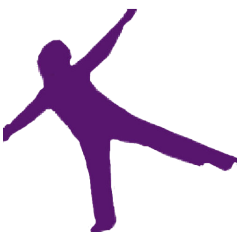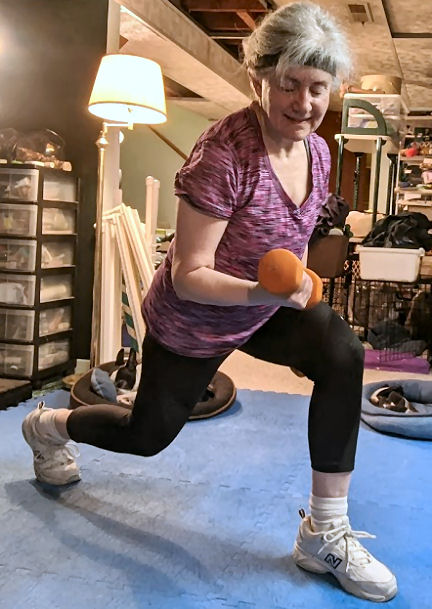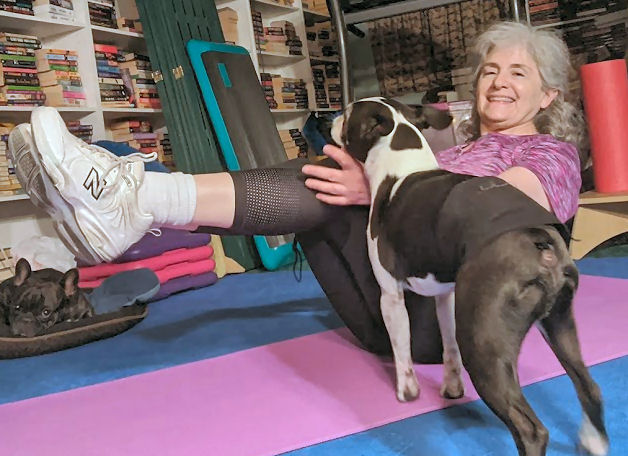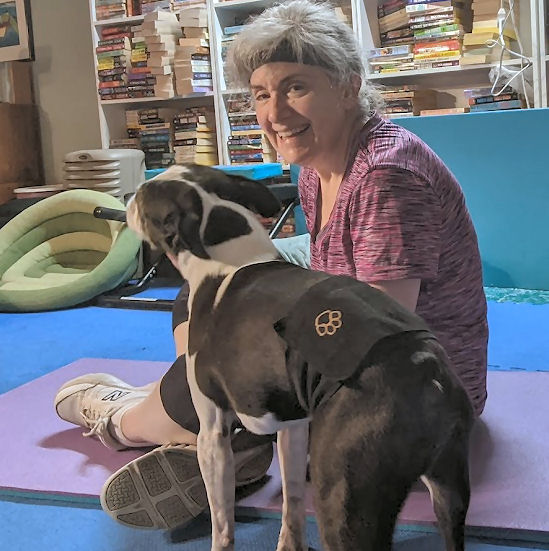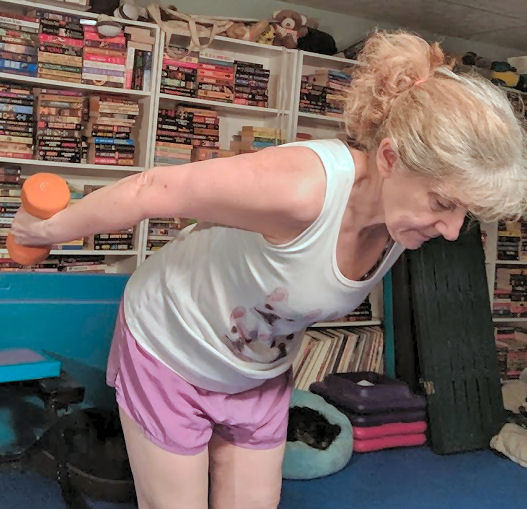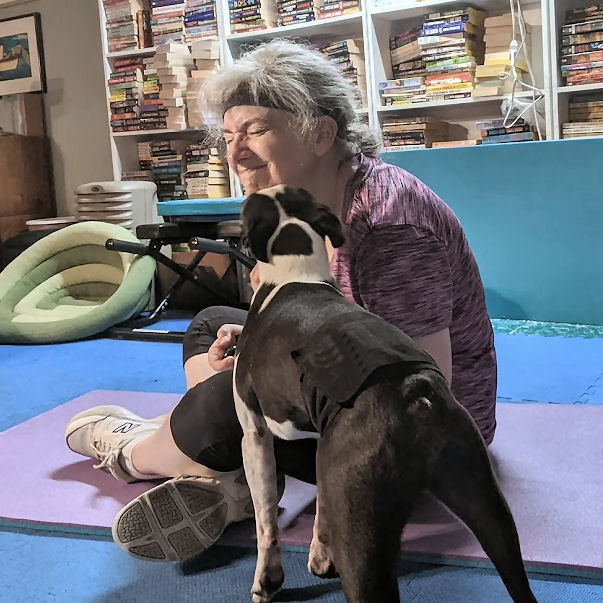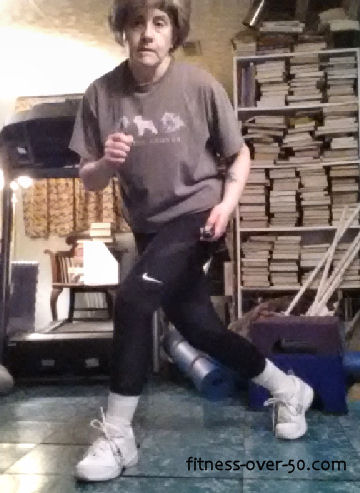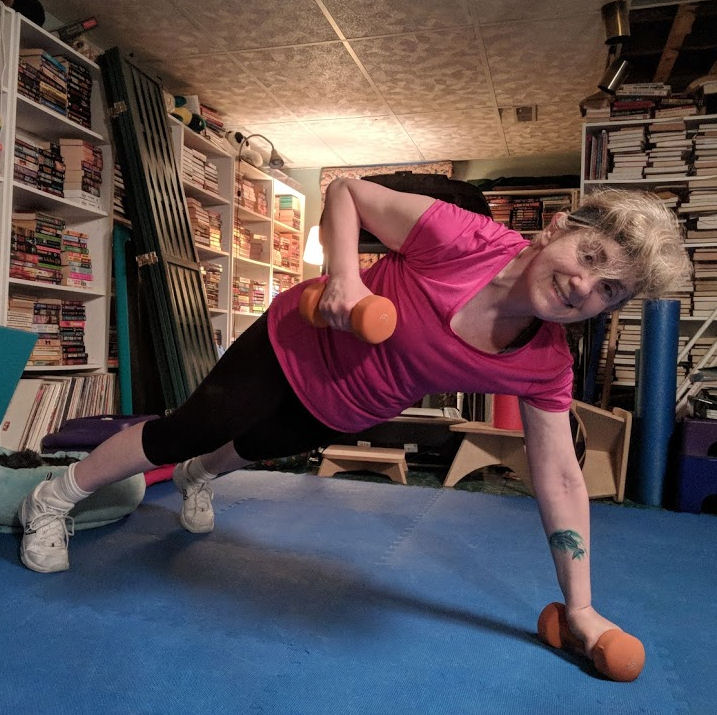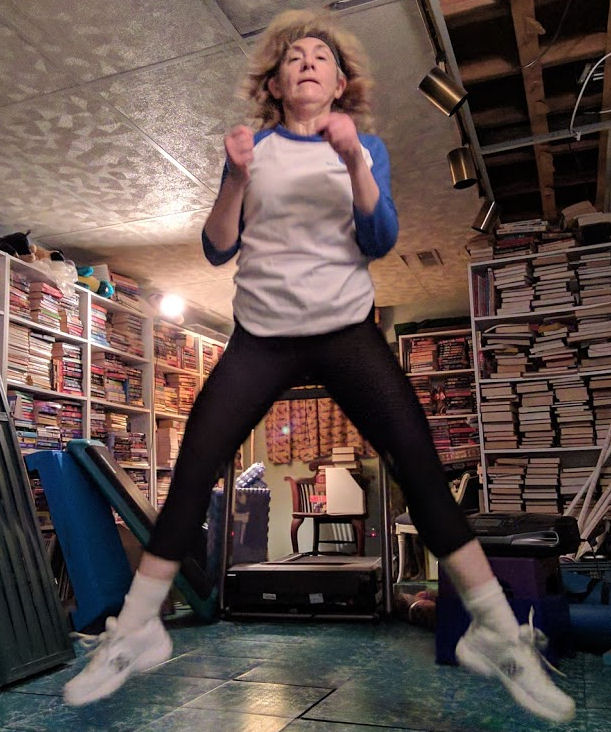There are loads of fitness myths and misinformation out there. Things you read about that sound like they might be true. Like if you, as a woman over 50, lift heavy weights, you’ll still get bulky and misshapen like a bodybuilder, so it makes sense to lift lighter weights and do more repetitions.
The fact is that, no matter what age you are, if you’re a woman, lifting heavy weights will not bulk up your muscles. Kristen Turner, a health navigator with Advocate Lutheran General Hospital, says, “Women do not gain muscle mass the same way men do, nor will they “bulk up” through training with challenging heavier weights.” In fact, the Centers for Disease Control recommends that everyone 65 and older include 2 days a week of weight training for their healthy aging. So, yes, I do lift weights at my age (and I’m 67)!
The truth about weightlifting
Your strength workout doesn’t have to take forever. In fact, Turner suggests just 8-12 repetitions, 8-10 exercises, that focus on all major muscle groups. The weights you use should be challenging, but not impossible. They shouldn’t be too light, either. Your twice-a-week strength workout will give you improved tone, strength and will help in weight management. The more muscle you have, the more calories and fat you will burn, giving you an overall toned physique. And I’ve found that with strength training comes more stamina. Gravity is evil, but we’re all subject to it. Our strong muscles will help carry us wherever we want to go.
Do I need free weights
You can get a great strength workout using just your own body weight. The plank pose, and all of its variations, will work virtually every muscle in your body. And all you need is the floor. As I mentioned in a previous article, if you can’t do the full plank at first, there’s always a modification. The plank pose works your arms, your shoulders, your core, and your legs.
If you want to go the free weight route at home, like I do, I did a little searching online for prices. These days you can get a pair of 3-, 5- and 8-pound weights and a stand for them for less than $100. These are certainly heavy enough for you to get started, and probably for quite a while after that.
What I do
I work out 4 – 5 days a week. 2 days I run / walk for 20 minutes on the treadmill and do 10 minutes of core work after the run. 1 day a week I do a Pilates routine (30 minutes) with a resistance band, which makes it more challenging. And 2 days a week I do combined aerobics and free weights, 30 – 40 minutes. Yes, I do lift weights at my age!
Get strong for your healthy aging
Don’t be scared of strength training. Lift weights – or at least heavy tomato cans – for your healthy aging.
